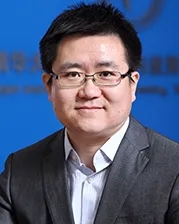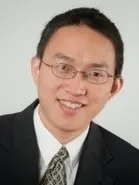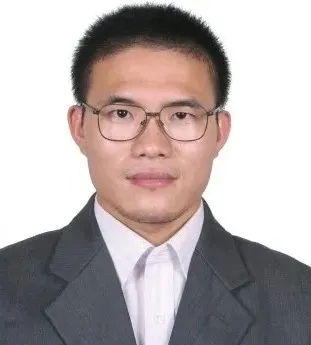Recently, the Institute of Electrical and Electronics Engineers (IEEE) announced the list of new Fellows for 2025. Zhang Bo, a faculty member from the Department of Electrical Engineering and Applied Electronics, along with alumni Li Zuyi (Master admitted in 1995) and Zhang Yongchang (Doctorate admitted in 2004), were elected.

Zhang Bo
Zhang Bo received his Ph.D. from North China Electric Power University in 2003 and stayed on as a faculty member after completing his postdoctoral work at Tsinghua University in 2005. He is a senior member of IEEE, an IET Fellow, a senior member of the Chinese Society for Electrical Engineering, and a recipient of the National Natural Science Foundation’s Outstanding Youth Fund. Professor Zhang has been nominated for the 2007 National Excellent Doctoral Dissertation Award, received the IEEE EMC Technical Achievement Award in 2019, and the Scientific Committee Award at the 34th International Conference on Lightning Protection. His main research focuses on the electromagnetic environment of power systems, numerical modeling and applications of power transmission and transformation equipment. He has published over 100 SCI papers, authored a monograph, and holds more than 70 patents. Reason for election: For contributions to electromagnetic environment effects in power systems.

Li Zuyi
Li Zuyi earned his Bachelor's degree in Power Engineering from Shanghai Jiao Tong University in 1995, his Master's degree in EEA from Tsinghua University in 1998, and his Ph.D. in Electrical Engineering from Illinois Institute of Technology in 2002. He is currently the Qiushi Chair Professor at Zhejiang University, with research interests in intelligent power system scheduling, power market design, microgrids, interconnected microgrids, and user-side energy internet. Reason for election: for contributions to functional microgrid design and microgrid cybersecurity analyses.

Zhang Yongchang
Zhang Yongchang received his Ph.D. from EEA of Tsinghua University in 2009. He is currently working at the Engineering Research Center for Power Electronics and Smart Power Use at North China Electric Power University. His research areas include power electronics and power transmission, large-scale energy storage technologies, new energy power generation, and rapid control prototype systems. He has been selected for the National Youth Talent Program, named a Highly Cited Scholar by Elsevier China, an IET Fellow, and received several awards including the Beijing Municipal Leading Talent and the Great Wall Scholar titles, as well as the Beijing Science and Technology New Star Award. He has enjoyed special government allowances from the State Council. In recent years, he has published two monographs, translated three works, and authored 57 SCI papers as the first/corresponding author (48 of which are in IEEE journals). Ten of his papers have been selected as ESI papers, and two have been selected as ESI Hot Papers. Reason for election: For contributions to control of motor drives and converters.
IEEE is an international organization for electrical, electronic technology, and information science engineers, founded in 1963 and headquartered in New York City. With over 420,000 members across more than 160 countries and regions, IEEE leads the development in areas such as signal and information processing, electrical engineering, electronics, computer science, communications, control, remote sensing, biomedical engineering, intelligent transportation, and space technologies. The IEEE Fellow is the highest membership grade, selected annually by IEEE’s peers among senior members. The recipients must have made significant contributions to the advancement or application of engineering sciences and technology, bringing substantial value to society. Each year, the number of new Fellows does not exceed 1/1000 of the total IEEE membership, making them outstanding scholars who have made significant achievements in science and engineering technology.

















 News & Events
News & Events